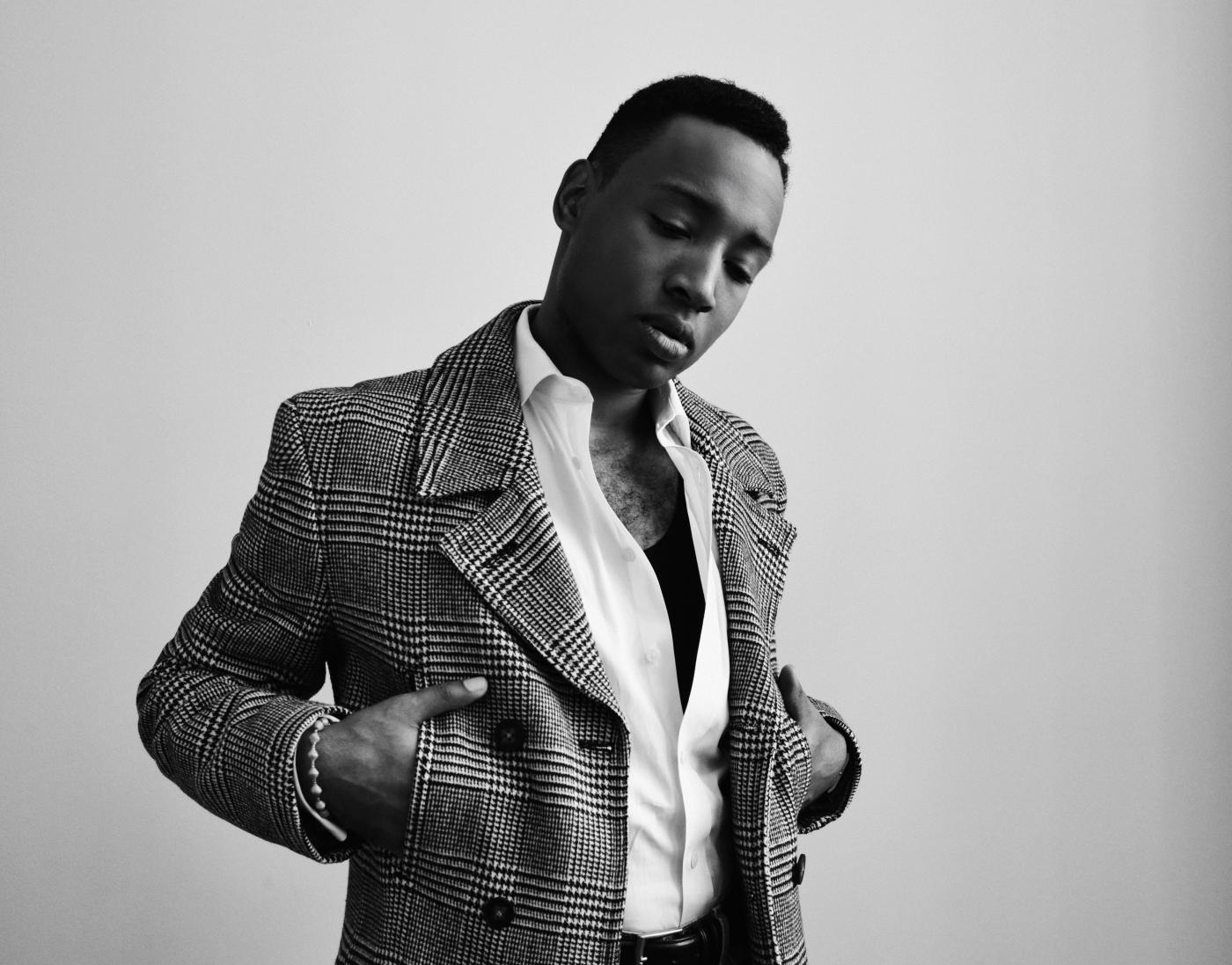Baltimore native bass-baritone Joseph Parrish is the epitome of the modern musician, critically acclaimed for his rich, warm voice and impeccable technique. Hailed for his versatility, Parrish is equally adept on the operatic, concert, and recital stage, taking the audience by storm when he won the Susan Wadsworth Young Concert Artists International Auditions in 2022. As a Juilliard Vocal Arts Artist Diploma candidate, Parrish enjoys a robust concert career, was an apprentice artist at the Santa Fe Opera, and has performed with Festival Napa Valley and New York’s City Lyric Opera, among others. Parrish was an inaugural cohort member of the Denyce Graves Foundation’s flagship Shared Voices program, an initiative designed to address diversity, equity, and inclusion through collaboration between Historically Black Colleges and Universities, top conservatories, and schools of music in the United States.
On February 6, Parrish takes the stage at the Kennedy Center Terrace Theater with a program of art songs and spirituals, with a special appearance by the Washington Performing Arts Children of the Gospel Choir, presented by the Washington Performing Arts and Young Concert Artists. The program spans across Parrish' diverse roots and inspirations, showcasing the music that shaped him as a musician. He speaks with us to shed light on the unique program, his artistic journey, and more.
Zenas Kim-Banther: How would you describe a lied or art song to someone who’s never heard it before?
Joseph Parrish: Art songs are not very different from a modern ballad. They are songs that tell a story. Most times written for voice and piano. The stories range from love to nature, dreams, family, etc. There is a song out there for any conceivable part of the human experience. One key component that differentiates art songs from modern ballads is the intricacy of the accompaniment. In many cases, you will find that the accompaniment has elements of the song’s “story” represented as themes throughout the piano part. This normally dictates the need for a separate musician. Art songs are frequently performed by two people, one singer and one pianist.
Lieder, often being in a “foreign” language, how would you advise the audience to get the most out of the listening experience?
I advise that the audience go into any foreign language experience with an open mind! Text and translations can be a very helpful and welcome addition when trying to understand any piece of music sung in an unfamiliar language. However, I find it difficult to maintain my focus when my eyes are going back and forth between the program book and the stage. I would suggest glancing at the translation before the song begins and then immersing yourself in the performance. You might be surprised about how much you actually know!
ZKB: What are the challenges of presenting a program of lieder, as opposed to preparing for an opera production?
JP: The challenges of presenting a program of lieder require facility with multiple languages and musical styles. This Kennedy Center recital will feature music in German, Russian, and English, from 1817 to 1999 across classical, gospel, pop, and American songbook. For a recital that features this breadth of repertoire, a mastery of style, specificity of language, and a fluidity to go in between those things quickly is necessary. For an opera, you sing one language and genre for the entire show. Opera has a set, costumes, a stage, scene partners, orchestra members, and a conductor holding it all together. A recital has the singer, pianist, and whatever room they are in. The preparations for presenting a program of lieder albeit challenging are rewarding because it is such an intimate process. It is just a couple people, working on music that they love, together.
ZKB: What was the inspiration behind the upcoming program/repertoire with the Washington Performing Arts?
JP: Throw it all at the wall and see what sticks! From the beginning, this program was created with my roots in mind, and they are spread FAR. Samantha Pollack, from Washington Performing Arts, approached me after the final round of Young Concert Artists (YCA) auditions and gauged my interest in working with Washington Performing Arts's Children of the Gospel Choir. From there, I decided that this program was going to be something that showcased ALL of what I love and what has influenced me as a musician. Bobby McFerrin’s “Don’t Worry Be Happy” is a song that I was introduced to in third grade, Franz Schubert’s “An die Musik” was the first Lied I heard live. Each of these songs has a very specific place in my heart and I was encouraged by both YCA and Washington Performing Arts to express my most authentic self.
ZKB: Are there similarities and correlations between lieder and spirituals?
JP: There are similarities and correlations between lieder and spirituals, thank you for asking this question. Lieder began as folk music. They were songs of the German people with a wide range of emotion, subject, and meaning. These songs were first elevated by composers such as Carl Loewe and Franz Schubert. They took these same stories and added more intricate musical gestures, but the base material and spirit thereof was still that of the German people. The arc of Negro Spirituals mirrors that. Spirituals have been passed down through generations, aurally in most cases. It was not until composers such as Harry Burleigh and Hall Johnson actually scored these selections that they made their way to the recital stage. Spirituals were birthed out of the lives enslaved Africans lived and had themes of love, steadfastness, faith. These were folk songs in their own right because they are steeped in a style and culture.
ZKB: Could you speak about your experience with Denyce Graves Foundation’s flagship Shared Voices program? What need in our current classical music environment is the foundation and program working to fill?
JP: My experience with Shared Voices has been instrumental to my success as a young artist. What has been so amazing about this program is that it helps with so much of the “extramusical” issues that young artists deal with. I have had the opportunity to sing for and be connected with industry executives through mock auditions and performances. I have been able to coach with world renown artists that have unparalleled wisdom. Even with that, the real gift is the resources that are provided to us that have nothing to do with how to sing. We have group sessions called “Industry Days” with accountants and financial planners that are able to address our financial questions. We have time with laryngologists to discuss the habits we can build in to take better care of our instrument. We talk about branding, marketing and social media management, in an age where it is vitally important to build those platforms. These kinds of subjects are not taught at any conservatories, they are not part of the core curriculums but are of the utmost importance when building a career.
The Denyce Graves Foundation is working to fill the need for equity and inclusion in American Classical vocal arts by championing the hidden musical figures of the past. As a young singer of color, I was constantly looking for people to look up to. People like Simon Estes, Jessye Norman, and George Shirley were household names. However, there is a forgotten generation of singers of color that need to be recognized. One of the foundation’s principals is “Learning is activism.” We cannot know how to move forward as an industry if we do not understand the past. The Denyce Graves Foundation is addressing that need.
ZKB: In your formative years, who or what was your motivation? What continues to motivate and inspire you today?
JP: Early on, my motivation came from watching Dave Weckl: Back to Basics. Dave Weckl was and will always be my favorite drummer and as a young drummer, I needed somebody to look up to. This VHS emphasized the importance of rudiments, fundamentals, and practice. These concepts were burned into my brain by the mullet-rocking jazz fusion drummer. My motivation today comes from my friends, mentors, family, and faith. I have been so blessed to have such a strong support system of people inside of this industry but also friends and family that have nothing to do with classical music. They just want to see me succeed. I carry that pride and belief with me everywhere I go. Also, being a man of faith, I cannot disassociate the clear impact that God has had on my life. I would not have this gift of singing or perseverance to endure hardships had it not been for my faith.
ZKB: Any words of wisdom for young artists aspiring to follow in your footsteps?
JP: Find something that you love and be fearless about it. The ability to make art is something that we all have, take pride in the things that set you apart. Whether that is the way your voice sounds, the language(s) you speak and music that you are interested in or your culture and how you grew up. Be proud of who you are. Next, singing is challenging. It takes hard work, precision, and specificity. As Joel Embid says, “trust the process.” Voices do not develop overnight; they take years of dedication so be about the process not the product. Last, be kind to yourself, love yourself. Singing comes from within, it is the outpouring of what we have in our bodies, minds, and souls. Be generous with what you give and love every moment of giving it.
Program
JOSEPH PARRISH, bass-baritone
DAMIEN SNEED, piano
Washington Performing Arts Children of the Gospel Choir
Michele Fowlin, artistic director
Adam Guettel – “Migratory V”
Franz Schubert – “An die Musik”
Gustav Mahler – “Liebst du um Schönheit”
Alma Mahler – “Laue Sommernacht”
Gustav Mahler – “Lob des hohen Verstandes”
Sergei Rachmaninoff – “Morning” from Six Songs, op. 4, no. 2
Pytor Ilyich Tchaikovsky – “Amid the Din of the Ball” from Six Romances, op. 38, no. 2
Sergei Rachmaninoff – “In the Silence of the Secret Night” from Six Romances, op. 4, no. 3
Alistair Coleman, YCA Composer-In-Residence – Psalm (World Premiere)
Henry T. Burleigh – “Her Eyes, Twin Pools”
Harrison Leslie Adams – “For You There Is No Song”
Charles Brown – “A Song without Words”
Jerome Kern & Oscar Hammerstein II – “All the Things You Are”
Thomas Chisholm – “Great is Thy Faithfulness”
Bobby McFerrin – “Don’t Worry, Be Happy” featuring Children of the Gospel Choir
Traditional, Arr. by Michele Fowlin – “Let Us Break Bread Together” featuring Children of the Gospel Choir
Richard Smallwood – “Total Praise” featuring Children of the Gospel Choir
PBS PASSPORT
Stream tens of thousands of hours of your PBS and local favorites with WETA+ and PBS Passport whenever and wherever you want. Catch up on a single episode or binge-watch full seasons before they air on TV.

